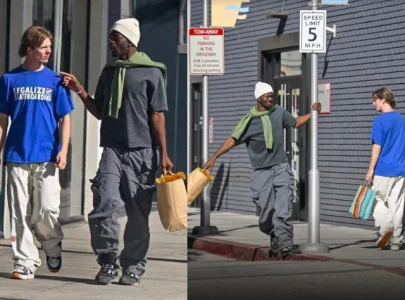
Over the ensuing centuries, good people in many countries have pushed back against authority in order to loosen the grip of the elite and share their power. Their success appears to correlate with the development of political and social institutions, which are broadly representative of the interests of society as a whole — in other words, institutions which include not only representatives of the elite clinging to power, but also the groups in society, which have attained enough economic leverage and social cohesion to transform institutions and demand a voice in running the state.
After 1688, political revolutions became a habit, it seems. Burke liked the 1765-1783 American Revolution, which resulted, ultimately, in an inclusive, democratic society and political structure. He ended up disliking the French Revolution, perhaps because it lasted (as he predicted), in one form or another, with periods of extreme authoritarianism, for about 80 years before France ended up as an inclusive, democratic society.
While intellectual contradictions abound in Burke’s writing (both the left and the right take comfort in things he wrote and claim him for their own), I feel quite sure that he would revile the so-called revolutions of the 20th century. The Russian Revolution of 1917, and the Nazi and other fascist revolutions of the 1920s and the 1930s, were revolutions by stealth, in which minorities seized power, either after elections or in the collapse of a corrupt ancien regime, and without popular mandate, imposed their revolutionary agenda through demagoguery, repression, ideological indoctrination and a falsified historical narrative often including the scapegoating of a particular group. They often used mass murder to carry out their programmes.
Despite Burke’s ambiguity on democracy, one theme runs through his core political writing — the great danger he saw in all revolutions was the potential for the emergence of authoritarian, repressive government with unchecked power. In his 1770 treatise, “Thoughts on the Causes of Our Present Discontent” (a title that resonates through the succeeding centuries to the present), Burke argued for strict limits on the authority of the King and supported the role of political parties in preventing abuses of power by the government. He wrote: “When bad men combine, the good must associate; else they will fall one by one, an unpitied sacrifice in a contemptible struggle.”
In this century, revolutions have occurred mainly in the Islamic world. How Burke would have felt about them is hard to say, but it strikes me that he would initially approve of those that come from the bottom up. Surely, however, he would be quite concerned when well organised, ideological groups appear to take control of what began as a general uprising, as well as the Thermidorian reactions in some by the elite, which are striving to maintain their exclusive hold on institutions and, thus, the state.
I suspect, however, that he would be most concerned about the revolutions by stealth. In this category, Bangladesh is the most egregious, and ironically, the most likely to produce a purely authoritarian state. A one-party election has produced a one-party state. The major opposition party is in both intellectual and organisational disarray, which is, of course, aided by the government crackdown on opponents and dissenters in the media, and the scapegoat religious parties. Civil society is both fragmented and cowed. The government has rewritten the narrative history of the country’s troubled birth to suit its own purposes. This is surely a Burkean situation: the good people must come together (associate) to stop the bad people, who are together, if those good people are not to fall one by one. Bangladesh, which was once hailed as a paragon of political and social modernisation in the Islamic world, will join the overcrowded ranks of one-party authoritarian states with corrupted, extractive institutions, which real modernisation will continually elude if good people remain supine.
Published in The Express Tribune, February 11th, 2014.
Like Opinion & Editorial on Facebook, follow @ETOpEd on Twitter to receive all updates on all our daily pieces.
COMMENTS (16)
Comments are moderated and generally will be posted if they are on-topic and not abusive.
For more information, please see our Comments FAQ




1725784957-0/Tribune-Pic-(17)1725784957-0-165x106.webp)







Mr Milam is a former Ambassador of a superpower that works closely with the absolute monarchs of the oil rich Gulf and those of Jordan and Morocco, was perfectly happy with Hosni Mobarak for decades as long as he did their bidding, does huge business with China, and is now courting Iran in the hope of perpetuating the centuries old colonial divide and rule agenda in West Asia. And yet he finds Bangladesh the 'most egregious and most likely to produce an authoritarian state'? That truly is a strange observation. Or is it that their chosen ally, the BNP and Jamaat, have lost out presently? How come he hasn't found space to mention that the Awami League repeatedly reached out to the BNP/Jamaat alliance to contest the elections, even offering them the Home Ministry in the government that would oversee the polls? Why hasn't he written about the terrible violence that was unleashed on the country by the BNP/Jamaat in the months before the election? The sentence that "the government has rewritten the narrative history of the country’s troubled birth to suit its own purposes" would be academically challenged and binned if he were to discuss it in Bangladesh, but understandably may be sympathetically viewed in a Pakistani newspaper. When quoting Burke, Mr Milam would do more justice when analyzing US foreign policy of the past half century or so and the people they have allied themselves with.
@Shamima: democracy can work when all parties believe in it. JEI & BNP in Bangladesh do not believe in it.
For the same reson democracy cannot work in Pakistan because most people want Islam ideology made conditional in the constitution. Many parties in Pakistan do not really believe in democracy or things like equality, justice, etc. All they care about is religion and their version of Islam. They are prepared to kill everything else for it.
@Shaheed: I agree. The clerics & military in Pakistan have been constantly nurtured by one entity- US!! China came much later and then also it didn't do as much damage as US did over the years.
The US must play a proactive role in restoring democracy in Bangladesh because the present regime will not listen to any voice of reason and logic. Moral suasion will not work. The US must sit with the international community (sans India, since this is their puppet regime) and reach a decision about Bangladesh that would include a deadline to hold elections under a neutral, non-partisan, interim government. This is the only way the US and the international community can help the 150 million hapless people of Bangladesh. I agree fully with the view expressed by Mr. Milam, however the oppression by state machinery has created such a climate of fear that good people (even if they band together) can't bring about change in Bangladesh anymore.
Shams Reza Dhaka Bangladesh
@ S and other Bangladeshis with short term memories:
if one-Party rule by the Awami League is so favourable and welcome today why did the people of East Pakistan oppose the Rule of Ayub Khan 1958-1968?The irony of this situation ...of your support of the present one-party rule is shameful. What you are saying is that one doesn't really care about Democracy and the Rule of Law as long as the rulers are your own people. It wasn't Dictatorship you really opposed but the fact that Ayub Khan was not a Bengali. Where the Aawami League is concerned, the struggle against West Pakistan was always about racism and ethnicity; obtaining Democratic rights was just a camouflage.
The big powers have connived to let BD slide or whatever. Not their business. Big brother India and China seem to be quiet happy with the outcome. People like Milam can write a column every now and then.
@S: You are probably a BD Government supporter. For your information, in democracy, ALL parties are allowed to contest on a levelled play ground. In BD, the ruling party ensured that main opposition parties are excluded from elections. And by the way, nobody can put conditions for a party to contest elections, it is the people who decided who they want in the power.
Very well-analysed. Revolution is a natural thing when the suppression transgresses the limits. At this stage the role of good people is decisive. If they turn spectators the reins of revolution are in the hands of mad ones and it brings havoc, instead of a bright moning of hope and just rule.
@assad:
He has always been anti-AL and he has always glossed over 1971 genocide to hide US support for Pakistan.
It's amazing how much affection these Americans have Islamists. They probably imagine they are siding with 'freedom' in promoting these regressive, dangerous forces. America's love affair with ignorance continues.
@S: Confused understanding of BD? He was the ambassador there so I doubt he is as confused as you make him out to be. Perhaps you cannot see where this trail leads. Its certainly not towards progress and tolerance.
One party rule is not necessary bad, Bangladesh would be following Pakistan's all weather friend CHina!
You earlier wrote ...
"Politically, Bangladesh has come full circle to the tipping point it faced almost 40 years ago. The election of January 5 brought one-party government back. History tells us that the next likely step is a consolidation of a one-party government into a one-party state. But history does not always determine politics. “It ain’t over ‘til it’s over,” and Bangladesh has a way of confounding pundits who predict its future."
-- William B Milam
So don't write off Bangladesh! AL has made only one condition to BNP - cut off relations with jeI and AL will call for re-election. Is that a tough condition? In Egypt, Muslim Brotherhood to kill to contest however unfair the election!
What a confused understanding of Bangladesh! Dear Author, in Bangladesh, the good people have already banded. The bad people (BNP+Jamaat) are in disarray and abdicated the election. So what were the good people supposed to do, twiddle their thumbs?